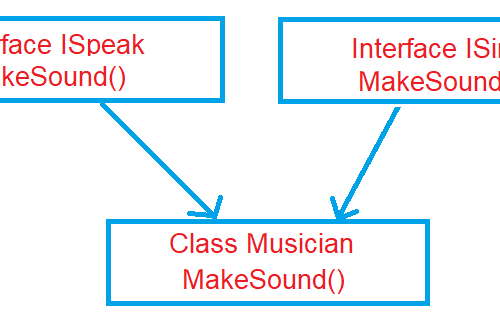
How to Create Backlinks: A Step-by-Step Guide
Introduction (How to Create Backlinks)
In the world of Search Engine Optimization (SEO), backlinks play a crucial role in determining the visibility and authority of a website. Backlinks, also known as “how to create backlinks” are incoming links from one website to another, and they are considered a vote of confidence in the content and credibility of your site. When other reputable websites link to your pages, search engines view your website as valuable and relevant, which can significantly improve your search rankings. In this comprehensive guide, we will explore the process of creating backlinks and the various strategies you can use to build or generate high-quality backlinks for your website.
Table of Contents
How to Create Backlinks in SEO – A Step-by-Step Guide
Understanding Backlinks and Their Importance
What are backlinks in SEO?
Backlinks, also known as inbound links or incoming links, are hyperlinks on other websites that direct users to your website. They are crucial for SEO because search engines like Google consider them as “votes” or endorsements for your content.
Why are backlinks essential for your website?
Backlinks are essential because they serve as a trust signal to search engines. When reputable websites link to your content, it indicates that your content is valuable and trustworthy, leading to higher search engine rankings and increased organic traffic.
How to Get Backlinks for Your Website
Create High-Quality Content
Creating high-quality, informative, and engaging content is the foundation of attracting natural backlinks. When you produce valuable content, other websites will be more likely to link to it as a resource.
Leverage Guest Blogging
Guest blogging is a powerful strategy to start blogging and acquire valuable backlinks from authoritative websites within your niche. By reaching out to relevant blogs and offering to write guest posts, you can provide valuable insights to their audience, establish your expertise, and gain quality backlinks that boost your website’s credibility and search engine rankings.

Engage in Outreach and Networking
Build relationships with other website owners, bloggers, and influencers in your industry. Networking can lead to collaboration opportunities and natural backlinks.
Utilize Social Media Platforms
Share your content on various social media platforms to increase its visibility. Engaging content has a higher chance of being shared, increasing the likelihood of gaining backlinks.
How to Create Backlinks Step by Step
Identify Relevant and Authoritative Websites
Find websites that are relevant to your niche and have a good reputation. Backlinks from authoritative sites carry more weight in SEO.
Craft Personalized Outreach Messages
When reaching out to other website owners for backlinks, personalize your messages to show genuine interest and value in collaborating with them.
Offer Valuable Guest Posts
When writing guest posts, ensure that they provide unique insights and valuable information to the target audience.
Monitor and Track Your Backlinks
Use SEO tools to monitor your backlinks regularly. This helps you identify any broken or lost links and allows you to take appropriate actions.
Understanding the Difference Between Dofollow and Nofollow Links
What are Dofollow links, and why do they matter?
Dofollow links are regular hyperlinks that pass SEO link equity from one website to another. They matter because they directly influence your search engine rankings.

What are Nofollow links, and when to use them?
Nofollow links include an attribute that tells search engines not to pass link equity. They are used for paid advertisements, sponsored content, or user-generated content to comply with search engine guidelines.
How to Build Backlinks without Paying for Them
Create Link-Worthy Content
Develop content that stands out from the competition and offers unique value to users. This encourages other websites to link to your content.
Engage in Link Roundups
Participate in link roundups or resource lists curated by websites in your niche. These lists often link to valuable content from other sources.
Utilize Broken Link Building
Identify broken links on other websites and offer your relevant content as a replacement. This strategy provides value to website owners while gaining a backlink for your site.
How to Generate Quality Backlinks for SEO
Focus on Relevant Anchor Texts
Use descriptive and relevant anchor texts when linking to your content. It helps search engines understand the context and relevance of your pages.
Earn Links from Diverse Domains
Having backlinks from a diverse range of domains signals authority and popularity to search engines.
Avoid Spammy Link-Building Practices
Stay away from black-hat SEO techniques like buying backlinks or participating in link schemes. Such practices can lead to severe penalties from search engines.
How to Add Backlinks to Your Website
Utilize Internal Linking
Create internal links within your content to guide users to relevant pages on your website. Internal links also help search engines understand the structure of your site.
Properly Place External Links
When linking to external sources, ensure they are reputable and add value to your content.
Use a Sitemap for Better Crawling
Submit a sitemap to search engines to help them discover all the pages on your website and index them effectively.
How to Generate More Backlinks
Collaborate with Influencers and Thought Leaders
Partner with influencers and thought leaders in your industry to gain exposure and attract backlinks.

Monitor Your Competitors’ Backlinks
Analyze your competitors’ backlink profiles to identify potential link-building opportunities.
Participate in Forums and Q&A Sites
Engage in relevant forums and Q&A sites to provide valuable answers and link to your content when appropriate.
Learn how to make money online by exploring various opportunities, such as freelancing, online businesses, affiliate marketing, and more, to achieve financial freedom and flexibility.
Conclusion
Creating high-quality backlinks is essential for boosting your website’s SEO performance and increasing organic traffic. By following the step-by-step guide and implementing effective strategies, you can establish your website as an authoritative source in your niche and achieve better search engine rankings.
FAQ’s
How long does it take to see the results of backlink building?
The results of backlink building can vary, but it generally takes a few weeks to several months to notice significant improvements in search rankings and organic traffic.
Are all backlinks equally valuable?
No, not all backlinks are equally valuable. Backlinks from authoritative and relevant websites have a more substantial impact on SEO than links from low-quality or unrelated sites.
Can I buy backlinks to improve my website’s SEO?
It is not recommended to buy backlinks as it goes against search engine guidelines and can lead to severe penalties, including a drop in rankings or even removal from search results.
How many backlinks do I need to rank higher in search results?
There is no specific number of backlinks that guarantees higher rankings. The focus should be on acquiring high-quality backlinks rather than a specific quantity.
Should I remove bad or low-quality backlinks from my website?
Yes, it is essential to regularly audit your backlink profile and disavow any bad or low-quality backlinks to maintain a healthy link profile and avoid potential SEO issues.
What are backlinks, and why are they important for SEO?
Backlinks, also known as inbound links, are hyperlinks on other websites that direct users to your website. They play a crucial role in Search Engine Optimization (SEO) by indicating to search engines the relevance and authority of your site. Quality backlinks from reputable websites can improve your website’s search engine rankings and increase organic traffic.
How can I create backlinks for my website?
There are several strategies to create backlinks for your website:
Content Creation: Develop high-quality, shareable content that other websites will want to link to naturally.
Guest Blogging: Write guest posts for reputable blogs in your industry, including a backlink to your website.
Resource Link Building: Create valuable resources, such as infographics or guides, and share them with relevant websites.
Broken Link Building: Identify broken links on other websites and offer your content as a replacement.
Social Media Promotion: Share your content on social platforms to attract attention and potential backlinks.
Outreach: Reach out to other website owners or bloggers in your niche and request backlinks.How can I monitor my website’s backlinks?
Various SEO tools are available to monitor your backlinks. Tools like Ahrefs, Moz, SEMrush, and Google Search Console can provide valuable insights into your backlink profile, including new links, lost links, and overall backlink quality.
What are backlinks?
Backlinks, also known as inbound links, are links from one website to another. They play a crucial role in SEO by indicating a website’s credibility and authority.
How do backlinks impact SEO?
Backlinks are a key ranking factor in SEO. Search engines consider websites with high-quality and relevant backlinks to be more authoritative, leading to better search engine rankings.
What are the types of backlinks?
Backlinks can be categorized as dofollow or nofollow. Dofollow backlinks pass link juice and positively impact SEO, while nofollow links do not influence rankings directly.
Which backlinks are the best for SEO?
High-quality, dofollow backlinks from authoritative and relevant websites are considered the best for SEO, as they can significantly boost a website’s search engine ranking.
What is a backlink strategy?
A backlink strategy involves the deliberate and strategic acquisition of high-quality backlinks to improve a website’s SEO performance and increase organic traffic.
How can I get quality backlinks for my website?
Getting quality backlinks requires creating valuable and shareable content, reaching out to authoritative websites for guest posting or collaborations, and promoting content through social media and outreach efforts.
Can you provide examples of backlinks?
Examples of backlinks include hyperlinks from blog posts, news articles, social media posts, directories, and other web pages that link back to a website.
How do I create backlinks for my website?
To create backlinks, focus on producing valuable content, guest posting on reputable websites, building relationships with other webmasters, and promoting your content to attract natural backlinks.
What is a backlinks checker?
A backlinks checker is a tool that analyzes and reports the number and quality of backlinks pointing to a specific website, helping website owners monitor their backlink profile.
Why are backlinks important in SEO?
Backlinks are essential in SEO because they signal to search engines that a website is trustworthy and authoritative. Quality backlinks can improve a site’s visibility and ranking in search results.
How can I create backlinks in SEO?
In SEO, you can create backlinks through various methods, including guest posting, content promotion, link building outreach, directory submissions, and social media sharing.
What is a backlink in SEO, and how does it work?
In SEO, a backlink is a hyperlink from one website to another. When a website links to another site, it acts as a vote of confidence, indicating to search engines that the linked website is valuable and relevant.
How do backlinks contribute to digital marketing strategies?
Backlinks play a vital role in digital marketing by driving organic traffic, improving brand visibility, and establishing a website’s authority and credibility.
Can you provide an example of a backlink in SEO?
An example of a backlink in SEO would be a tech blog linking to a smartphone review article on another website. The link from the tech blog acts as a backlink to the smartphone review page, signifying its relevance and credibility.
Where can I find free backlinks sites?
While obtaining high-quality backlinks often requires effort, you can find free backlink opportunities on social media platforms, blog comments, forums, and web directories.
What are badge backlinks in SEO?
Badge backlinks are links acquired when a website provides badges or banners to other sites that display the linked website’s name or logo. These badges often link back to the website, acting as backlinks.
How can I leverage backlinks in SEO to boost my website’s ranking?
To leverage backlinks for better SEO ranking, focus on obtaining high-quality, relevant backlinks from authoritative sources, create valuable content that attracts natural links, and maintain a diverse backlink profile.
How do backlinks play a role in off-page SEO?
Backlinks are a critical component of off-page SEO as they represent external signals of a website’s authority and popularity, influencing its rankings in search engine results.









